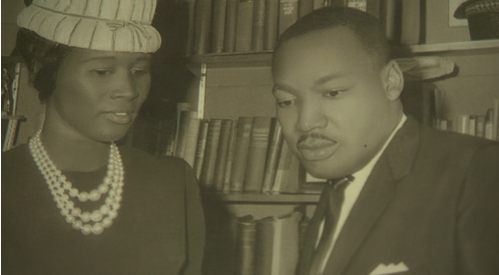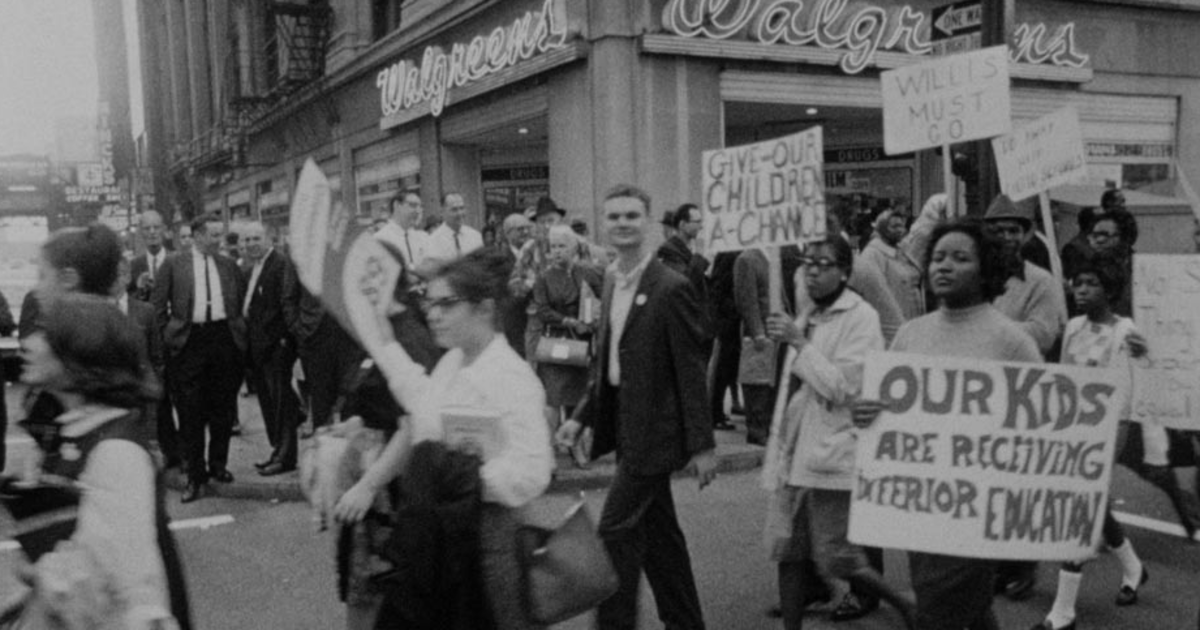[ad_1]
In 1963, public education for black students in Chicago was so deplorable that parents like Rosie Simpson urged kids to stay home in protest.
Simpson, now 85, was incensed by segregationist policies in the city that relegated black students to classrooms in trailers, while white students attended well-resourced buildings. She and more than 200,000 other citizens took to the streets that October for a massive, daylong Chicago schools boycott.
The boycott and demonstrations that followed spurred several short-term gains. Superintendent Benjamin Willis was eventually ousted. Plans to house classrooms for black students in trailers were scrapped.
But now, more than a half-century later, Simpson said many obstacles remain for black students. Schools that serve students of color are still far from comparable with schools for white students.
“The system is even worse now than it was then,” said Simpson, who had six children who attended Chicago public schools and was a key player in the ’63 boycott. “They’ve closed schools. Kids are under pressure my kids didn’t have to go through. They don’t have the books. They don’t have access to a library.”
The story of Simpson’s activism is featured in a forthcoming documentary by Kartemquin Films about the Chicago schools boycott. Producers said they hope the film will reveal parallels about unequal schooling that still exist today in Chicago and elsewhere.

Photo Courtesy of Kartemquin Films
The producers recently received attention after posting footage of Democratic presidential candidate Bernie Sanders getting arrested in 1963 at a Chicago schools protest.
They’ve been interviewing activists involved with the boycott for several years. Most of the documentary’s footage comes from the founder of Kartemquin Films, Gordon Quinn, the documentary’s producer and director. Quinn shot the video when he was a student at the University of Chicago.
“I think what’s important about this stuff is the issues that were behind it. We forget that it’s not just important because there’s a guy running for president” who protested, said Quinn, who continues raising money for the film and hopes to have it finished by early 2017. “These are critically important issues that 50 years later we’re still struggling with.”
Quinn said some of the ’63 protesters he has spoken with expressed “a mix of anger that things were still so bad and frustration. I think for some of them there was this certain sense of hopelessness.”
Chicago public schools have been roiled with conflict in recent years. In 2013, Mayor Rahm Emanuel closed nearly 50 public schools that served mostly low-income, African-American or Latino students. The move inspired public outrage and a summer of protests.
In 2015, former Chicago superintendent Barbara Byrd-Bennett pleaded guilty to corruption charges. Students of color, who make up about 85 percent of Chicago students, post depressing test scores. In many ways, city schools remain racially segregated — like many other districts — with black students and white students occupying separate facilities.
Jenner Elementary School exemplifies this struggle. In 1963, 95 percent of Jenner students participated in the schools boycott, according to Kartemquin Films producers.
Families in the Jenner community are still fighting the same battle. Since late 2015, parents and school leaders have been trying to merge Jenner, a majority black, low-income school, and nearby Ogden International School, which is more racially diverse and affluent.
Ogden’s building is over capacity, while Jenner’s is under-enrolled. School leaders have said a merger could lift both school populations, while solving space issues. Many parents remain anxious.
“A segment of our community just went bezerk,” said Rebecca Wells, a white Ogden parent who has championed the merger. “When we started to peel away the layers, we realized maybe it’s race, maybe it’s class.”

Photo Courtesy of Kartemquin Films
The present story of Chicago schools isn’t all bad, of course. Average ACT scores are on the rise. The district has pioneered restorative justice programs that seek to reduce student suspensions and expulsions.
But when Simpson looks back on her time as an activist, she said she worries that she and her peers gave up too soon.
“We got relaxed,” said Simpson. “We thought the battle was over. We had a little success and thought things [would] keep going up and changing for the better. Of course that didn’t happen.”
[ad_2]
Source link





















